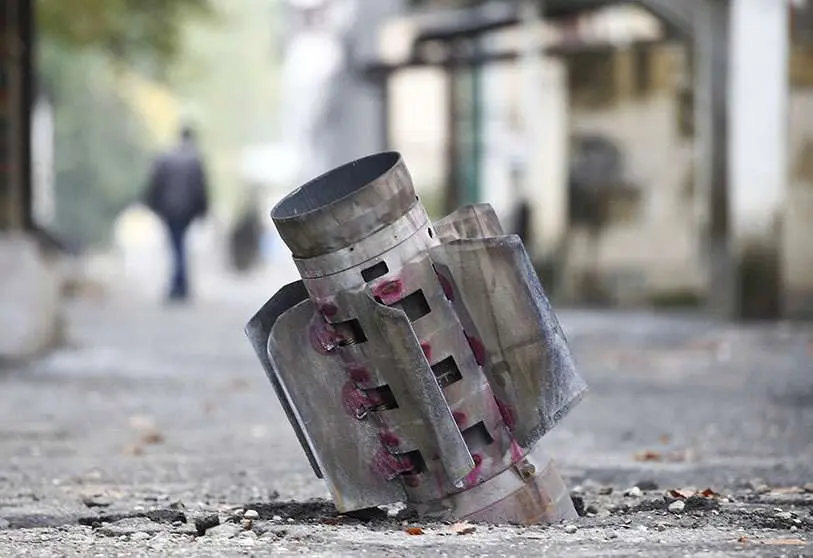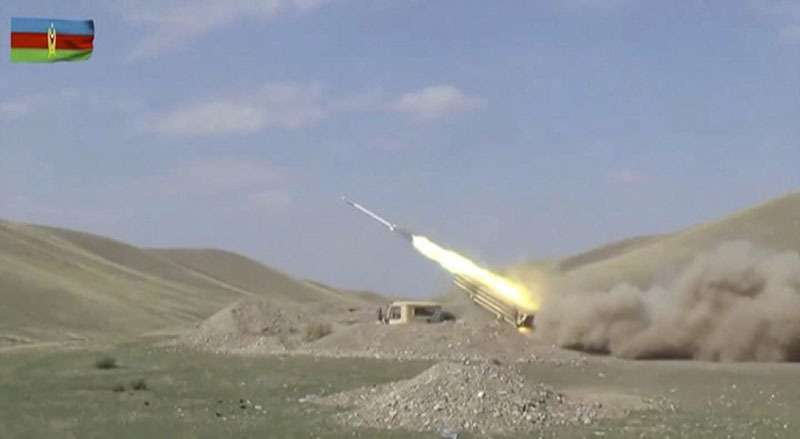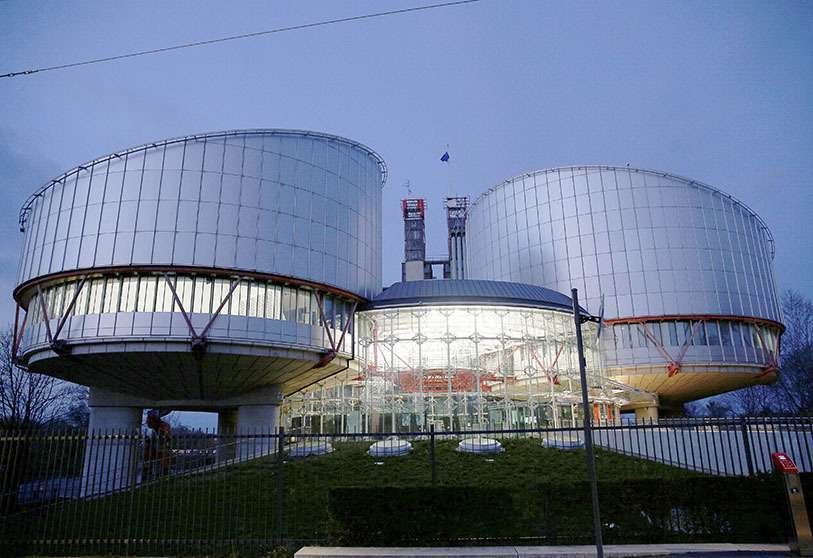Iran denounces the fall of rockets on its borders due to the Nagorno-Karabakh conflict

Iran warned this day that it will not tolerate any aggression against its territory, where several missiles launched by Armenia and Azerbaijan in the conflict they are fighting in the enclave of Nagorno-Karabakh, located in Azerbaijani territory, have fallen.
The spokesman for the Iranian foreign ministry, Saeed Khatibzadeh, said that no aggression against Iranian territory by any of the parties involved in the region could be tolerated. "We warn all of them to take the necessary precautions in this regard," the official website of the department reported.
Saeed Khatibzadeh also stressed the need to respect the territorial integrity of the Republic of Azerbaijan, the principle of non-aggression against civilians, the cessation of conflicts and the start of serious talks.
In recent days, the clashes between Azerbaijan and Armenia have resulted in the firing by the parties to the conflict of several rockets and missiles in several villages and areas adjacent to the border between the two countries and Iran, reported the local Iranian news agency Mehr. In these attacks several houses have been damaged and a six-year-old boy has been injured.

Turkey's involvement in the Nagorno-Karabakh conflict is making the international community uncomfortable. The mobilisation of Turkish militias from Syria and Libya to Azerbaijan has inconvenienced Armenia, which has denounced the facts before the European Court of Human Rights (ECtHR).
The Strasbourg Court on Tuesday accepted an interim measure requested by Armenia and urged Turkey and all states involved in the Nagorno-Karabakh conflict (Armenia and Azerbaijan) to "refrain from any act that contributes to the violation of the European Convention on Human Rights".
Last Sunday Armenia filed a request for precautionary measures against Turkey in the European Court concerning the conflict between Armenia and Azerbaijan, whose hostilities began on Saturday 26 September.
The measures announced by the European Court of Human Rights concern the violation of rights guaranteed to civilians by the Convention and the obligations of States under this European human rights treaty.
The precautionary measures, provided for in Article 39 of the Rules of Procedure of the Strasbourg Court, are applied only exceptionally when the applicants are exposed to a real risk of irreparable harm.
The European Court has already accepted last week another interim application by Armenia, this time against Azerbaijan to stop military actions that may involve violations of the rights of the civilian population.
It called on both countries to protect the rights to life and health, and the prohibition of torture and inhuman or degrading treatment.

The territory of Nagorno-Karabakh lies within Azerbaijan and is a small enclave of Armenian population that wants to become independent and part of the neighbouring country (Armenia). With 140,000 inhabitants, 90% of whom speak Armenian, in 1991 they proclaimed themselves an independent state by creating the Republic of Artsaj.
To understand how this whole territorial conflict began, we have to go back to 1918, when Iosif Stalin, with the creation of the USSR, occupied the Caucasian region and divided the territory into three socialist republics: Georgia, Armenia and Azerbaijan. As in many other cases in the history of colonisation, the ethnic groups and religions that lived together in the area were not taken into account.
This is how Nagorno-Karabakh remained within Azerbaijan despite being more akin to Armenia. For many years this uncomfortable situation was maintained without wanting to take it to the Soviet leadership.
But when the Soviet empire began to weaken, the inhabitants of Nagorno-Karabakh began to demonstrate and Armenia, in an attempt to expand its territory, entered into a war with Azerbaijan that was to last eight years (1987-1994). This war took more than 30,000 lives and displaced around a million people.
Although the USSR tried to prevent this Armenian annexation, its priorities were beginning to focus on survival. This is how the Soviet regime began to deflate without being able to exert any kind of influence. In 1991 the Nagorno-Karabakh region proclaimed itself independent by creating the Republic of Artsaj. This new state shares administration and banks with the Armenian country, which also gained Azeri ground during the war by surrounding the eastern part of the newly proclaimed country.
The war ended in it with the Azerbaijanis as the big losers as they suddenly found 20% of their country invaded by Armenia and an independent republic proclaimed without their consent. About 800,000 Azeris were forced to leave the occupied area after the war.
This state has not been recognised by any UN country, but diplomatic efforts to recognise the region have made (and continue to make) great efforts to achieve their goals. The president of Azerbaijan, Ilham Aliyev, has proclaimed on several occasions that "their greatest enemies are the Armenians" and has given no sign of wishing to settle this conflict of which they feel they are historical victims.
In the city of Madrid, in 2009, an attempt was made to enliven the resolution of the conflict in which three lines were proposed to ease tensions: first, the inhabitants of Artsaj could decide whether to be from Armenia or Azerbaijan. The second point urged the Armenian army to withdraw from the occupied region to the southeast of Nagorno-Karabakh. And finally, Azerbaijan would guarantee a humanitarian corridor for all those who wish to leave Artsaj for Armenia.
These talks were broken off as neither country was willing to give up the territory of Nagorno-Karabakh. Tensions have been building up until now, which have resumed the military confrontation, leaving dozens of wounded, according to sources from the Ministries of Density on both sides.








